Technology is evolving and developing at the speed of light. Even people who resisted having any type of device or technology were forced into it at the beginning of the pandemic, as it was the only way to communicate with the world. The phones and tabs quickly add new features and characteristics, making your brand-new smartphone outdated several months after you bought it. Technologies spread their influence on every part of our life, making everything and everyone connected and interconnected.
While the workspaces are stuffed with various kinds of tech devices that provide non-stop and efficient workflow, the developers’ and customers’ focus is gradually shifting to our homes. The smart house idea isn’t new, however, the actual number of users is relatively small, as people are pretty reluctant about it. While some lack even the essentials, others enjoy all the benefits:
- Convenience – all the appliances and devices are united under one application, so you can easily manage everything just by using a single application.
- Peace of mind – no more worries about the leaking tap, the unplugged steam iron, not closed door, etc. All the notifications are sent to your phone.
- Cost-saving – even though the devices aren’t cheap, they will make a difference in the long run. You can control the heating or cooling systems, and lighting, not spending a dime for their unnecessary work.
What is the smart home about?
1. Security
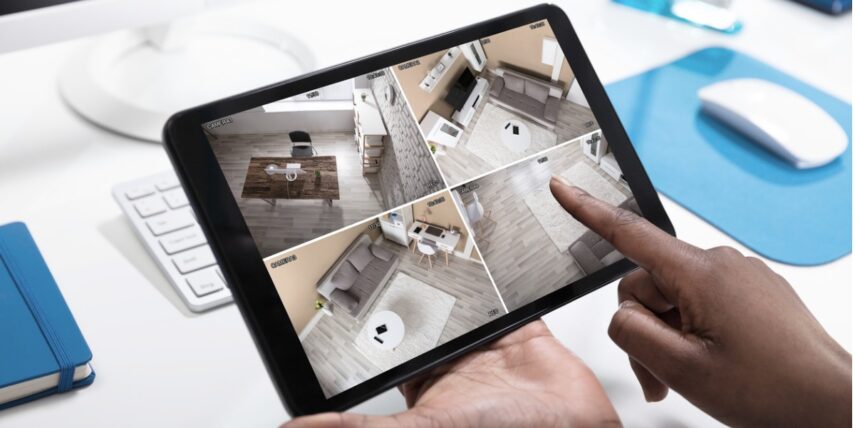
The first and foremost thing to care about is security. Intelligent security systems help you keep everything under control as all the cameras and sensors can be connected to one application.
IP cameras will send real-time video to your phone or laptop and allow you to watch all the surroundings. If you check for the cameras in Alimart, you’ll see lots of them on offer, fitting all the requirements and tastes.
An additional layer of security is added by sensors of movement, tilt, and shock, as they send you the alerts on the phone, and (if you signed an agreement) to the security company. Unlike the alarms, which are loud, the sensors aren’t noticeable, and the burglar will not hear anything having a slim chance to escape.
If your visitors came earlier than you could make it home, you can use the smart system to let them in.
2. Voice assistance
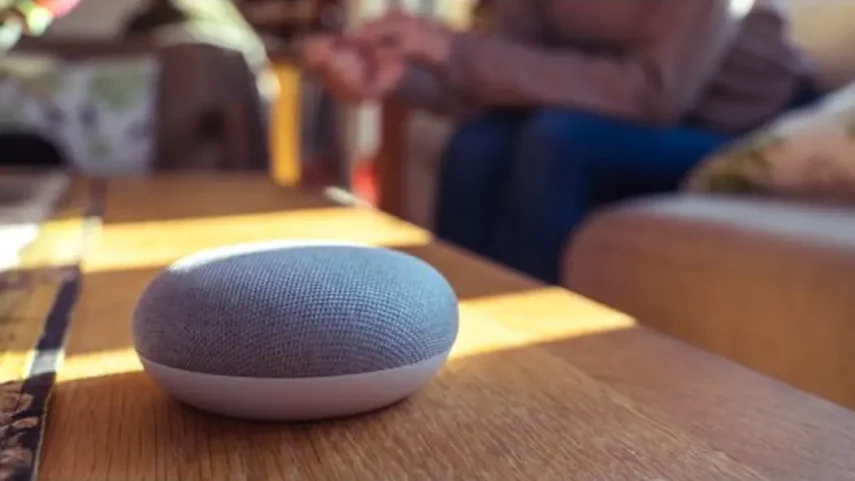
Voice assistance is a type of software that recognizes the voice of the homeowners and performs the required tasks. Basically, you don’t even need to check the application to control the functions of the smart amenities, you just need to give clear orders to the assistant.
3. Robotic devices for household chores
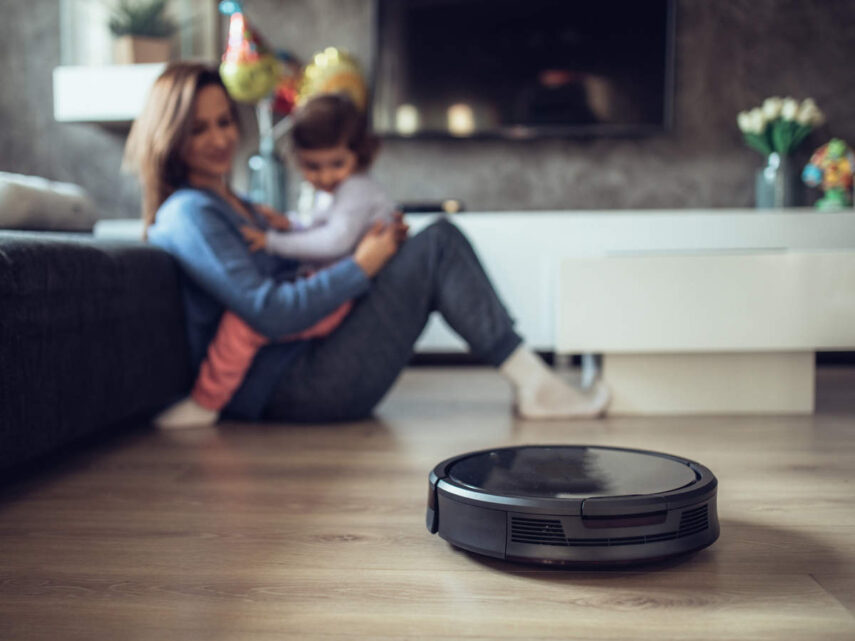
Such devices are like magic wands, as you can get rid of the annoying household routine. Are there a lot of people among us who like cleaning, dusting, cooking, washing the dishes, and washing up? While it may seem okay to do these tasks separately from time to time, it’s extremely tiring after the working day. Instead of spending time with pleasure, you need to embark on yet another work, but this time at home.
The robotic vacuum cleaner will care about the spotless look of your home, besides, it has additional antiallergen sensors and computer vision navigation.
Cooking will be easier, as the only thing you need to provide is ingredients and some assistance.
4. Health-care

Smart homes will not be complete if there were no devices connected to our health conditions. We started with wearable devices that can help measure blood pressure, temperature, oxygen in the blood, etc, and moved on to more sophisticated devices, especially helpful for elderly people with chronic diseases, as they have emergency and fall detection.
A smart toilet seat, which can help you measure blood pressure, EKG, and heart rate will come in handy if such problems have been detected. There’s even a smart toilet that can do the waste analysis, providing full insight into the users’ nutrition and health.
5. Additional entertainment
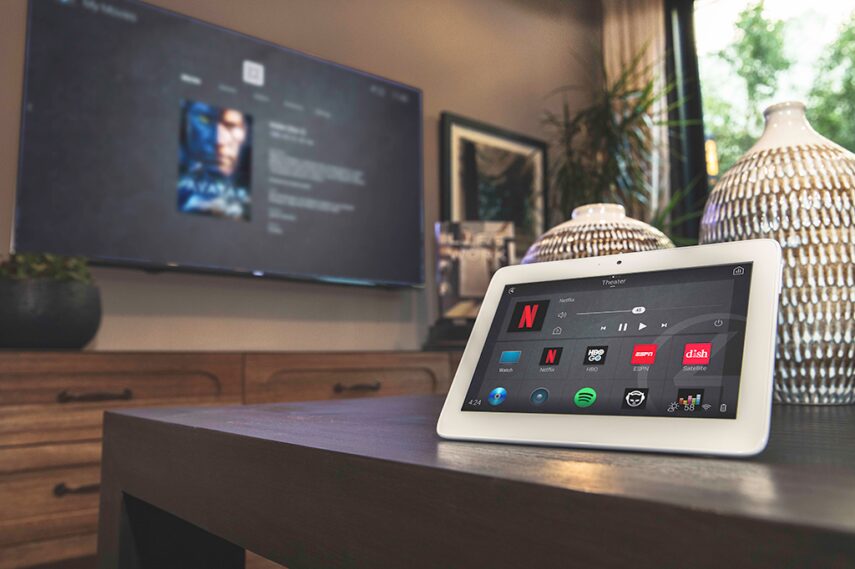
With the help of smart home systems, it’s possible to create a unique atmosphere at home every day. Besides, you can plan it in advance – on the way home or when being at work; or the system will adjust to your mood, using the data from the wearable devices. Music, sounds, interactive pictures – it can cheer you up, help to calm down, or just keep up the relaxing mode. Moreover, you have no need to look for the movies to watch, as the list will already be prepared, taking into account your activities online and preferences.
6. Eco-friendliness
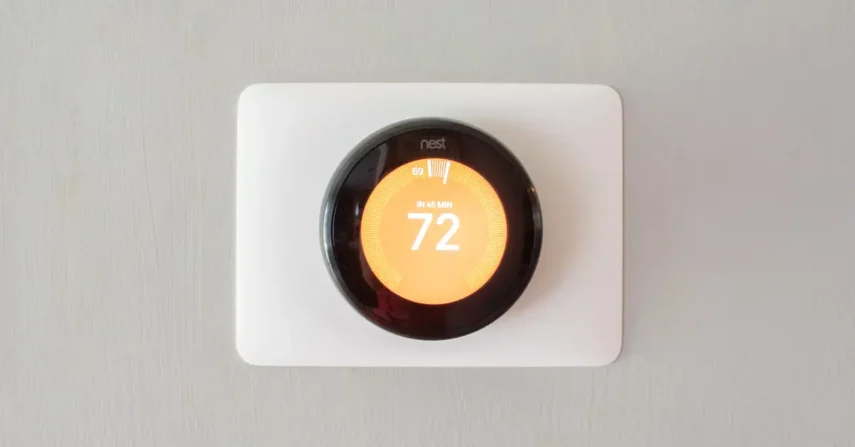
While everyone seems to have energy-efficient light bulbs, the next step is smart light bulbs, which are controlled through the application or voice assistant. Just one click of the button and the whole house changes its appearance. Besides, the light is on when you need it.
The smart heating controllers will define the best and most comfortable temperature for you, and keep it steady. Targeted heating saves money, as there’s no need to warm up the entire territory; and you lower your emission footprint, helping nature.
A smart house isn’t just a whim out of laziness. It’s a requirement of our time, as the benefits are obvious, especially in terms of health and security. Setting up the smart home isn’t that quick and easy, it requires time and knowledge. We recommend scanning the stores for the security devices first and then building up the entire system step-by-step, adjusting to the novelty of the system and the convenience it provides. There’s no need to buy everything at once, as it’s important to define which things will work best for you.
Related Posts:
- Smart Light Switch: Must Have Gadget For Your Smart Home?
- #3 Best Smart Thermostats That Every Smart Home Needs Today
- #3 Smart Doorbell That Every Smart Home Needs Right Now
- Best Smart Vents Every Smart Home Should Have (IN) Summers?
- Home Theatre Installation Company ─ Custom…
- Audio – Video Solutions For Your Business – All you…







